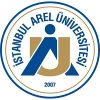Educational psychology plays a critical role in understanding and improving the learning process, student development, and educational practices. In Turkey, the field of educational psychology is highly regarded, with a focus on enhancing teaching methods, educational policies, and student well-being.
This blog post aims to provide a detailed overview of studying educational psychology in Turkey, including educational opportunities, curriculum, research prospects, career pathways, and the significance of this field within the Turkish educational system.
Overview of the Educational Psychology Specialization in Turkey
The specialization in Educational Psychology in Turkey offers students a comprehensive understanding of the psychological principles and theories that impact teaching, learning, and student development. This specialization focuses on the application of psychological concepts to educational settings, aiming to improve instructional practices, enhance student motivation, and promote positive socio-emotional well-being. Students studying educational psychology gain insights into cognitive, social, and emotional development, learning theories, assessment and evaluation methods, and intervention strategies.
The curriculum emphasizes research methodologies, allowing students to conduct empirical studies and contribute to the field's knowledge base. Graduates with a specialization in educational psychology have a solid foundation to pursue careers as educational psychologists, academic researchers, school counselors, or educational consultants. They play a vital role in promoting effective teaching practices, supporting student development, and contributing to the improvement of the Turkish educational system.
Significance of Educational Psychology in the Turkish Educational System
Educational psychology plays a vital role in the Turkish educational system. Its significance can be observed in the following areas:
- Student Development and Well-being
Educational psychologists contribute to fostering students' cognitive, emotional, and social development, ensuring their well-being and providing appropriate support systems.
- Teacher Professional Development
By incorporating educational psychology principles into teacher training programs, educators can enhance their instructional methods, classroom management strategies, and student engagement techniques.
- Inclusion and Special Education
Educational psychologists play a crucial role in supporting inclusive education and designing interventions for students with special needs, ensuring equal opportunities for all learners.
- Education Policy and Reform
Educational psychologists provide evidence-based recommendations for education policy development, contributing to the improvement of teaching and learning practices across the country.
Educational Psychology Curriculum in Turkey
The curriculum for educational psychology programs in Turkey is designed to provide students with a comprehensive understanding of psychological theories, research methods, and their applications in educational settings. Key subjects commonly included in the curriculum are:
- Developmental Psychology
Students study the theories and concepts related to human development, including cognitive, social, emotional, and physical development. This knowledge is essential for understanding the different stages of learning and the psychological needs of students.
- Learning Theories
Theoretical frameworks of learning, such as behaviorism, cognitivism, constructivism, and socio-cultural theories, are explored. Students gain insights into how individuals acquire knowledge, develop skills, and process information.
- Educational Assessment and Evaluation
This subject focuses on various assessment techniques and strategies used to measure students' learning outcomes, identify strengths and weaknesses, and inform educational interventions. Students learn about standardized testing, observational methods, and formative assessment approaches.
- Educational Interventions and Strategies
Students study evidence-based intervention strategies to support student learning, motivation, and well-being. This includes topics such as instructional design, classroom management, differentiated instruction, and inclusion practices for students with diverse needs.
- Research Methods
A strong emphasis is placed on research methodologies, including quantitative and qualitative research approaches, statistical analysis, data interpretation, and research ethics. Students develop the skills necessary to conduct empirical research and contribute to the field.
- Psychological Counseling in Education
This subject covers the principles of psychological counseling and guidance in educational settings. Students learn about counseling techniques, career development, prevention and intervention strategies, and ethical considerations in educational counseling.
Best Universities to Study Educational Psychology in Turkey
Turkey is home to several reputable universities that offer excellent programs in educational psychology. Here are some of the best universities to consider for studying educational psychology in Turkey:
1. Middle East Technical University (METU)
Located in Ankara, METU is known for its strong psychology department and research-oriented approach. The Department of Psychology at METU offers a comprehensive program in educational psychology, combining theoretical knowledge with practical applications. Students benefit from experienced faculty, research opportunities, and state-of-the-art facilities.
2. Boğaziçi University
Boğaziçi University, located in Istanbul, is a prestigious institution with a renowned psychology department. The Department of Psychology at Boğaziçi University offers a specialization in educational psychology, providing students with a solid theoretical foundation and practical skills. The university's strong academic reputation and vibrant research culture make it an excellent choice for aspiring educational psychologists.
3. Hacettepe University
Situated in Ankara, Hacettepe University is well-known for its comprehensive psychology program. The Department of Psychology at Hacettepe University offers a specialization in educational psychology, covering topics such as cognitive development, learning theories, assessment, and intervention strategies. The university's strong emphasis on research and experienced faculty make it an attractive option for students interested in educational psychology.
4. Koç University
Koç University, located in Istanbul, is a private institution known for its high academic standards. The Department of Psychology at Koç University offers a program in educational psychology that combines rigorous academic training with practical experiences. The university's strong faculty and research focus provide students with opportunities for in-depth learning and research collaboration.
5. Ankara University
Ankara University, situated in Ankara, is one of the oldest and most prestigious universities in Turkey. The Faculty of Educational Sciences at Ankara University offers a specialized program in educational psychology, providing students with a comprehensive understanding of educational theories, psychological assessment, and intervention strategies. The university's long-standing reputation and extensive academic resources make it a top choice for educational psychology studies.
6. Istanbul University
Istanbul University, located in Istanbul, is another esteemed institution with a strong psychology department. The Department of Psychology at Istanbul University offers a program in educational psychology, focusing on the application of psychological principles in educational settings. Students benefit from a well-rounded curriculum, experienced faculty members, and research opportunities.
7. Ege University
Situated in Izmir, Ege University is recognized for its comprehensive psychology program. The Department of Psychology at Ege University offers a specialization in educational psychology, covering topics such as learning theories, child development, and educational assessment. The university's commitment to quality education and research makes it an attractive choice for students interested in educational psychology.
Educational Psychology Research and Professional Development
Turkey offers research opportunities and avenues for professional development in the field of educational psychology. Students have the opportunity to engage in research projects, collaborate with faculty members, and contribute to academic publications. Additionally, attending conferences, workshops, and seminars allows students to stay updated with the latest developments and connect with professionals in the field.
Educational Psychology Career Prospects in Turkey
Studying educational psychology in Turkey opens up a range of fulfilling career opportunities. Some potential career paths include:
- Educational Psychologist
Graduates can work as educational psychologists, providing support and guidance to students, teachers, and parents. They assess learning difficulties, develop intervention plans, and contribute to creating inclusive and supportive learning environments.
- Academic Researcher
With a doctoral degree, graduates can pursue academic careers as professors, researchers, or scholars. They can conduct research, publish articles, and contribute to the advancement of educational psychology knowledge.
- Educational Consultant
Graduates can work as consultants for educational institutions, advising on curriculum development, assessment practices, and teacher training programs. They help improve educational practices and policies.
- School Counselor
Graduates with a focus on counseling can work as school counselors, providing guidance and support to students in areas such as academic performance, career development, and socio-emotional well-being.
- Policy Analyst
Educational psychologists can contribute to educational policy development and analysis, working for government agencies, non-governmental organizations, or research institutes. They contribute their expertise to shape educational policies and practices.
Student Exchange Programs in Turkish Universities
The questions revolve around the possibility of studying at different universities in different locations outside or inside Turkey. The university offers several programs for local and international student exchange, the most important of which are: Erasmus program, Mevlana program, and Farabi program.
1. Erasmus Program
The Erasmus program is one of the important study programs that allow student exchange between European and other international universities. Turkey joined this program in 2003, and it is one of the easiest ways to study in Europe, where approximately 3 million students have participated since the program's inception.
The program offers financial support, opportunities to learn new teaching methods, learn a new foreign language, and discover new countries, their history, and civilization. To join the program, you must complete at least one academic year, have a GPA higher than 2, pass a language test, provide a personal photo, valid passport, grade report, and letter of recommendation.
2. Melvana Program
The Mevlana program, implemented in 2011, allows student exchange between universities in Turkey and within other countries. To apply for the program, you must complete at least one academic year, have a cumulative GPA higher than 2.5, pass a language test, provide a personal photo, valid passport, grade report, and two letters of recommendation that can be obtained from the university.
3. Farabi Program
The Farabi program allows students to exchange between Turkish universities without canceling their registration in their original university. To register for the program, you must complete at least one academic year (excluding the preparatory year), have a cumulative GPA higher than 2, and have the right to apply for only one university. This grant funds one semester with the possibility of completing further semesters.
Conditions for Educational Psychology in Turkey
- Public Universities
Admission to some Turkish government universities depends on success in the Turkish YÖS aptitude test or the SAT aptitude test, in addition to obtaining a high school diploma with a varying grade requirement depending on the university.
A TOEFL test and Turkish language proficiency test (TOMER) are required if the language of instruction is Turkish. If the student doesn't have a TOEFL or TOMER certificate, they will have to take a language proficiency test at the same university they're applying to if accepted. If the student passes, they start their first year of study immediately. If they fail, they have to undergo a preparatory year to learn the language.
- Private Universities
As for the study requirements in Turkish private universities, they don't require any additional conditions from students. It's enough to have a high school diploma with a grade of no less than 50%. When choosing to study in English, a preparatory year is taught, as well as when studying in Turkish.
Advantages of Registering through Turkey Campus
One of the main advantages that Turkey Campus offers to students when registering at Turkish universities include:
- The ability to sign contracts with private universities in Turkey, which guarantees foreign students' admission and a reduction in tuition fees upon acceptance.
- Turkey Campus provides multiple options for private and public universities, indicating available majors, annual fees, duration of study, and required registration documents.
- Based on each student's motivation, we offer tailored educational consultations for their specific situation.
- We guide students through all the necessary steps for official registration in the university and obtaining a student ID card.
- We also assist in securing suitable university housing and obtaining residence permits for students.
- We maintain continuous communication with students to provide advice and address any inquiries they may have.
Studying educational psychology in Turkey offers students a comprehensive understanding of the psychological principles that underpin education, learning, and student development. The educational opportunities, well-rounded curriculum, research prospects, and diverse career paths make educational psychology a rewarding field for aspiring psychologists and educators. By applying psychological theories and research findings, educational psychologists contribute to the enhancement of teaching methods, student well-being, and the overall quality of education in Turkey.
If you're interested in joining one of the universities in Turkey, we at Turkey Campus are pleased to offer you a helping hand and embark on the journey towards your future. Our team of experienced professionals will guide you through the entire application process to Turkish universities, starting from choosing the suitable program to submitting your application, securing your acceptance, and ensuring that you benefit from all available grants and discounts offered by the universities through us.








